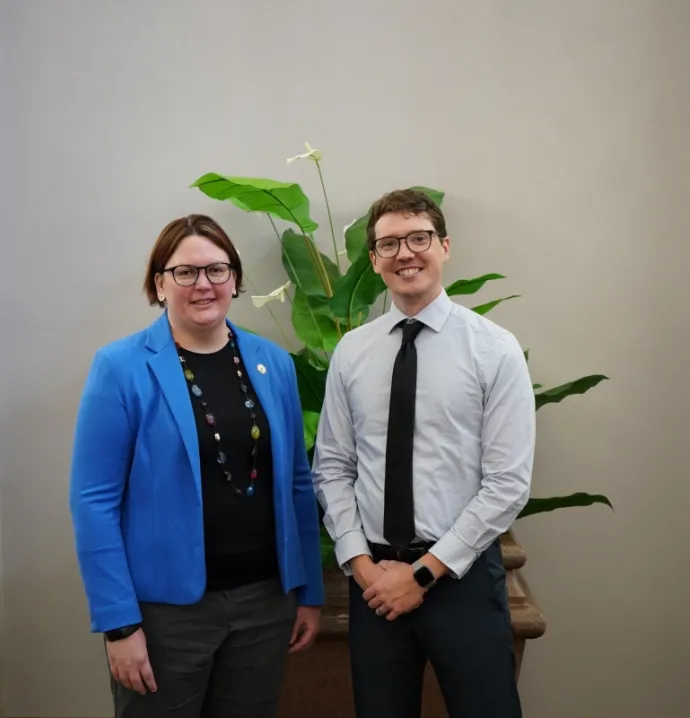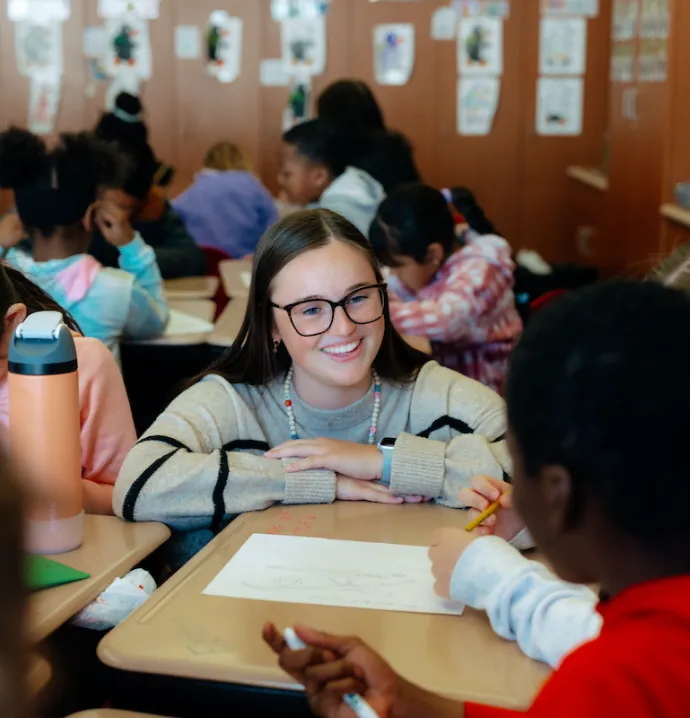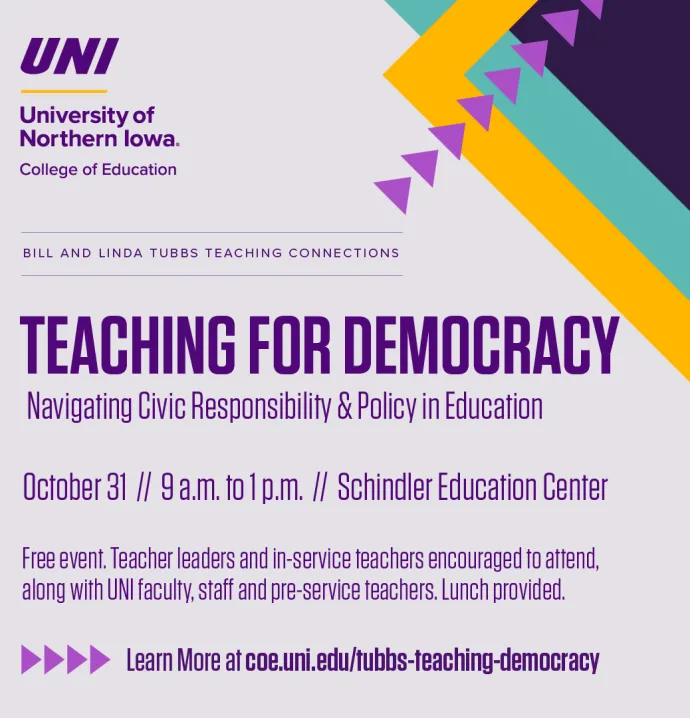Finding the Balance in Well-Being
Finding the Balance in Well-Being

Definitions of well-being vary by background, by discipline and by generations. The Oxford dictionary defines well-being as: the state of being comfortable, healthy and happy. Several College of Education faculty describe well-being as:
- Involving physical and emotional health.
- Living a lifestyle that optimizes five core wellness dimensions: physical, social, intellectual, spiritual and emotional.
- Including self-acceptance, positive relations with others, autonomy, environmental mastery, purpose in life and personal growth.
- The state of feeling content that leads to job satisfaction and meaningful connections with students, families and co-workers.
- A subjective concept encompassing a healthy balance of personal responsibilities, life tasks and work demands that optimize self-care and joy.
However interpreted, elements of this concept permeate the academic experience across the College of Education. Whether preparing students to lead tomorrow’s classrooms, to enhance lives within a community, to advance into leadership or to advise future students, a common strand is an education which is mindful of well-being in learning, preparation and, eventually, practice.
And while not new-so-new, there is heightened awareness and focus on this side of teaching and learning as a result of the real repercussions of COVID-19 and other stressors in today’s world.
When trends and events collide: COVID-19 and mental health
College of Education faculty cite the intersection of mental health and COVID-19 as a primary factor for a greater focus on well-being.
“While child and adolescent well-being began to increase before the pandemic, the focus on well-being was heightened during and since the pandemic. Children and adolescents are experiencing a mental health crisis, and educators observe the consequences of this every day,” notes Nicole Skaar, professor, school psychology. “This is driving the interest in many educators to learn more about social and emotional learning (SEL), trauma-informed educational practices and school-based mental health strategies and systems.”
Shelley Price-Williams, assistant professor, postsecondary education: student affairs, says multiple factors have made well-being more salient, including less stigma and greater transparency around mental health and its magnitude.
“The current generation in college has been exposed to more natural disasters and mass shootings than any prior,” she says, “Finally, COVID-19 stressed well-being as individuals worked to navigate isolation, financial and housing instability, and mortality through the loss of loved ones for possibly the first time in their lives.”
The result? Affirmation of the need for skills that can apply to teaching, leading and working with others. And, recognition that such skills are critical for today’s practitioners for their own personal and professional well-being.
SEL minor, conference meet needs
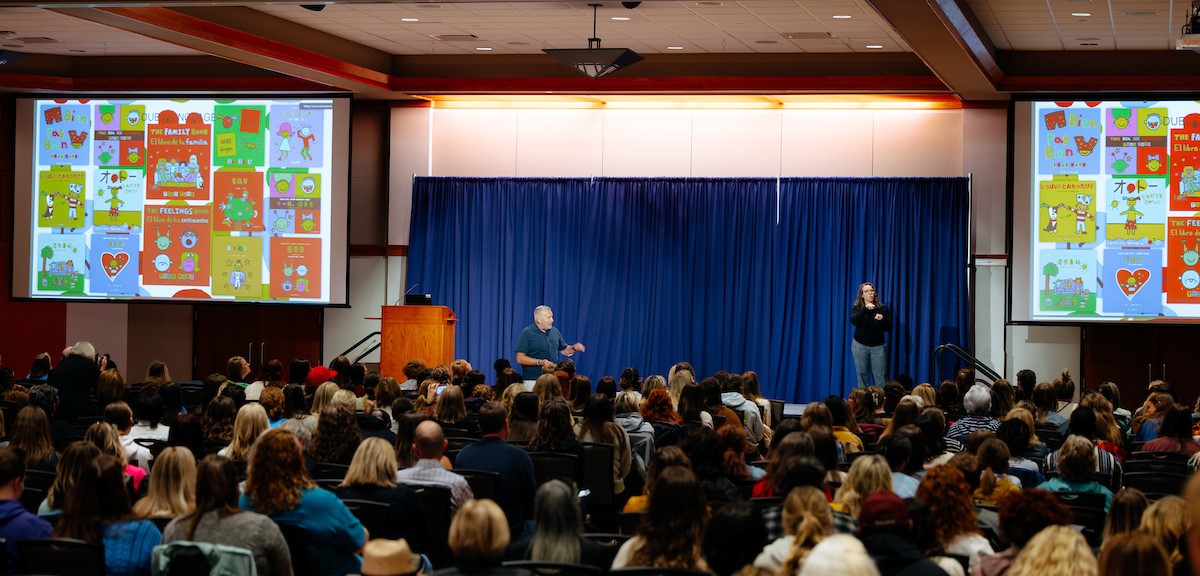
The addition of the college’s Social and Emotional Learning Conference and a social and emotional learning minor, both new in 2022, are two tangible responses to growing needs.
With the minor, pre-service teachers gain the knowledge needed to integrate SEL into their classrooms in a way that is developmentally appropriate while learning skills to increase their own well-being.
Building on existing requirements for education majors, the minor adds a social and emotional learning seminar and offers electives in areas such as conflict resolution, social psychology and even interpersonal forgiveness. Students also participate in external learning events such as workshops focused on school mental health.
“Research indicates the numerous benefits of including social emotional learning in schools,” says Kerri Clopton, associate professor, school psychology, who was among those partnering with colleagues in the Department of Curriculum and Instruction to create the curriculum. “There has been an increased focus on the mental health needs of children and youth, as well as teacher stress and burnout. This minor addresses both of these areas.”
Looking at SEL from both the student and teacher perspective was part of the impetus for launching the Social and Emotional Learning Conference.
“The idea of social and emotional learning has been around since the early 1990s, so it’s not new. There has become more of an awareness that students come to our schools with social and emotional needs,” Skaar says. “As the social and emotional needs of students have come into focus, we have also been reminded to consider and support the social and emotional needs of educators.”
“It was especially evident during and after COVID-19 that teachers and their students could benefit from more about the topic,” notes Denise Tallakson, associate professor of instruction, curriculum and instruction. “Increasing teacher burnout and the rise in mental health concerns are reasons this conference is so important for educators.”
The coursework and conference have struck a chord. The SEL minor is now the second most popular minor at UNI. Similarly, the SEL conference annually attracts hundreds of pre-service and in-service teachers, faculty and others, such as social workers, counselors and school psychologists.
A conscious consideration for school leaders
What is good for teachers is good for administrators and board members as well, says Mary Sult, assistant professor, educational leadership, who also directs the Institute for Educational Leadership, which works with current leaders and school boards.
Well-being in school leadership takes in the conscious consideration of mental health and supports for those in our care. The shift in education to a whole-child concept is not that new in Iowa; however, the shift to consider the whole employee is a more recent development.”
Sult likens recognition of the benefit of emotionally healthy school leaders and staff to societal shifts in accepting self-care for others. “Society has made room and even embraced a mothers’ need for self-care in order for her to be a better mother for her children. The old martyr mentality has mostly been disrupted and now there is a shift for our educational leaders and teachers as well.
“A healthy, happy, emotionally safe staff has a lot more to offer our students than those who are not. So when we ask what’s best for the students, we have a little more perspective on serving the needs of teachers and administrators as well,” Sult says.
Educational leadership students complete a wellness plan. “They draft goals and supporting activities to help them become more mentally and physically fit in order to better establish a leadership-life fit,” Sult says. “Our department believes that school leaders need to be cognizant of the mental health needs of the adults in their supervision alongside those needs of our students.”
Aspiring principals learn more about the School Administrators of Iowa (SAI) CatchLife wellness program during a seminar. “The program, initially started by our colleague Roark Horn, helps to jumpstart or refine mental and physical well-being, specifically thinking deeply about the stressors that go into school leadership,” Sult says.
The benefits of self-care and leisure
Rod Dieser is a professor in recreation, tourism and nonprofit leadership and licensed mental health counselor whose academic perspective encompasses the benefits of leisure and self-care. His students have chosen careers that contribute to well-being — whether that’s leading youth agencies, supervising local parks and recreation programming or coordinating events for the regional tourism bureau.
In addition to discovering the in’s and out’s of these future roles, Dieser’s students learn the value of self-care as part of a seminar prior to student internships. “A self-care plan is a thoughtfully constructed and intentional wellness guide to promote health and well-being,” he says.
Dieser has researched the importance of what he calls an “optimal leisure lifestyle” within self-care plans. While studying the founders of the Mayo Clinic, he learned that they never seemed to experience burnout as they created the world-renowned clinic. “What I learned was how deeply they were engaged in serious leisure pursuits that seemed to buffer any type of burnout features,” he says.
These are among research findings Dieser shares with his students as he encourages them to think of their health as well as that of their clients and community.
“As a licensed mental health counselor, I believe engagement in an optimal leisure lifestyle has so many health benefits,” he says. “Serious leisure can result in self-actualization, personal growth and happiness, life satisfaction, increased levels of confidence, skills and self-esteem, friendship, sense of community, belonging and in discovering meaning in life.”
Concern – and change – for student affairs
Coursework and experiential learning in student affairs focus on skills for college roles ranging from admissions to financial aid to advising. When Price-Williams arrived at UNI, she saw an opportunity to further develop interpersonal helping skills to support students both professionally and as individuals balancing life roles and academic work.
“I designed a new course in professional helping in which students refine their micro-helping skills and expand their knowledge of current challenges encountered by college students, particularly related to mental health,” she explains. Coursework includes developing cultural competencies and skills in navigating crises, developing rapport and empathy, active listening and using and interpreting nonverbal communication. Other activities prioritize self-care and empower students with strategies for balance and wellness.
“These skills are pivotal to advising and supporting college students. Though not trained to become professional counselors, our students acquire effective helping skills that enable them to identify student needs and make appropriate referrals to support offices on campus,” she says. And, they support these graduate students as well.
“One lesson I teach is that a helper must be well to help others,” she notes.
The student affairs students report greater confidence in their abilities. That’s welcome news at a time when current practitioners face increased workloads and stress following an exodus of student affairs professionals after COVID-19. “The stress and anxiety for professionals persist. Well-being continues to be something for which all strive,” she says.
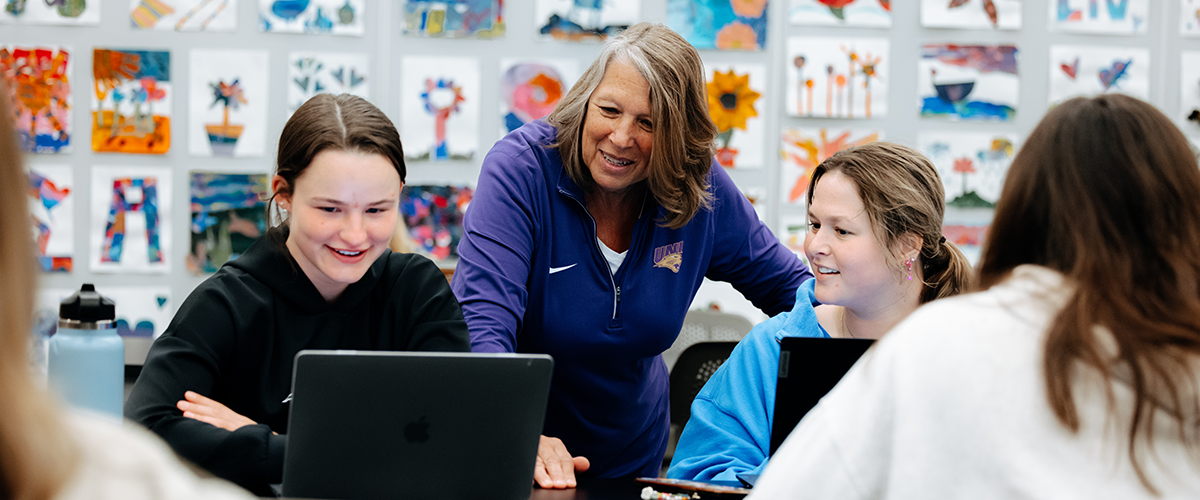
Opportunity – and challenge – for school psychologists
In the school setting, one group of professionals is particularly primed to lead and support in this area: school psychologists.
“School psychologists are mental health providers in schools. Often we are the professionals with the most training in social, emotional, and behavioral health in the building,” says Skaar, a coordinator of the state’s leading school psychology program.“School psychologists are trained to support system level reforms for SEL and mental health, to assess these areas of functioning, and to provide social, emotional and behavioral health interventions for individuals and groups.”
Though awareness of the profession has risen, Skaar says opportunity remains to impact the educational experiences for students, teachers, families and school leaders. With ratios in Iowa of one school psychologist for every 1,900 students–compared to the recommended one for every 500–the caseload for today’s professionals often limits their focus.
“School psychologists have the necessary training and could be leaders of educator well-being initiatives in schools. Unfortunately, their caseloads are too large to be able to spend meaningful time supporting educators and leading systems change that will improve educator well-being. At this time, they provide support for teacher well-being as they collaborate on educational evaluations and student services, but this work is ad hoc and not systemic,” says Skaar.
Through a federal grant-funded “grow your own” program, the UNI School Psychology program is working to add more school psychologists in rural school districts via Area Education Agency partners. And, across the residential and GYO programs, they are taking a more balanced approach in training new professionals.
“We are spending more time talking about educator mental health while we also train on student behavior and mental health. We are aware of the increasing stressors on educators, especially those who work with students with disabilities,” she says.
Impacting people and professions
As students move into practice, COE faculty envision positive outcomes from a enhanced focus on well-being, social and emotional learning and mental health.
From the self-care vantage point, “I see a professional who can say ‘no’ to extra work demands or engagements in order to sustain their wellness activities. It is learning to pick between good, better or best, sometimes saying ‘no’ to good events – an extra work meeting – in order to engage in better activities, such as exercising or spending time with your family members,” says Dieser.
“Teaching is a stressful profession. If a teacher has learned strategies to regulate their own emotions, they will be more effective in working with a student who is having difficulty regulating their emotions and behavior,” says Clopton.
Price-Williams notes: “At any time on any day in higher education work, a professional may encounter a student in need or crisis. The incorporation of these skills into everyday practice prepares practitioners for instances where a student might exhibit intense affect or demonstrate a recognizable change in behavior and emotion. These skills also underpin more effective communication with peers and institutional leadership.”
Research on adverse childhood experience (ACE) factors and physical changes in a child’s brain shared by Mark Sander, co-director of the Midwest Center for Mental Health and keynote speaker at the SEL conference, was “astounding,” says Tallakson. “Educators face these issues every day. Understanding the research and having strategies to help students develop SEL skills can help all students be successful in school and life.”
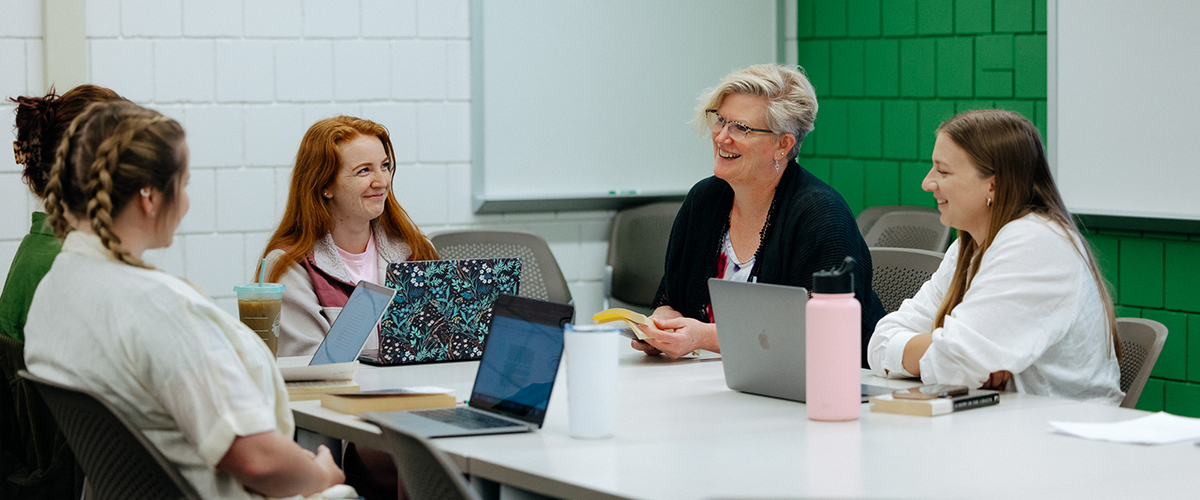
Researching support for educators
Investigators are in the final stages of exploring the effectiveness of providing a multi-tiered system of support to educators to reduce burnout, increase job satisfaction and increase knowledge and skills in responding to social situations in teaching. The effort was funded by a two-year, $250,000 grant from the Scanlan Center for School Mental Health at the University of Iowa.
Kerri Clopton, College of Education, and Darcie Davis-Gage, previously with the College of Social and Behavioral Sciences, have been testing a multi-tier system of support involving the Adult Resilience Curriculum for Educators (ARC); virtual psychoeducational groups focused on topics related to those in the ARC; and individual telehealth counseling for additional intensive support.
In the first year, they offered up to three levels of support to four schools and one cohort of student teachers, and in the second year, to three schools and two cohorts of student teachers.
“The results will help us make adjustments to improve the efficacy of the program,” says Clopton, who expected to complete data analysis this past summer. “At this point, we know we need to develop a Tier 2 support that is less time intensive for educators. Their time is valuable–and limited–so we are considering methods of support that require smaller periods of time.”


